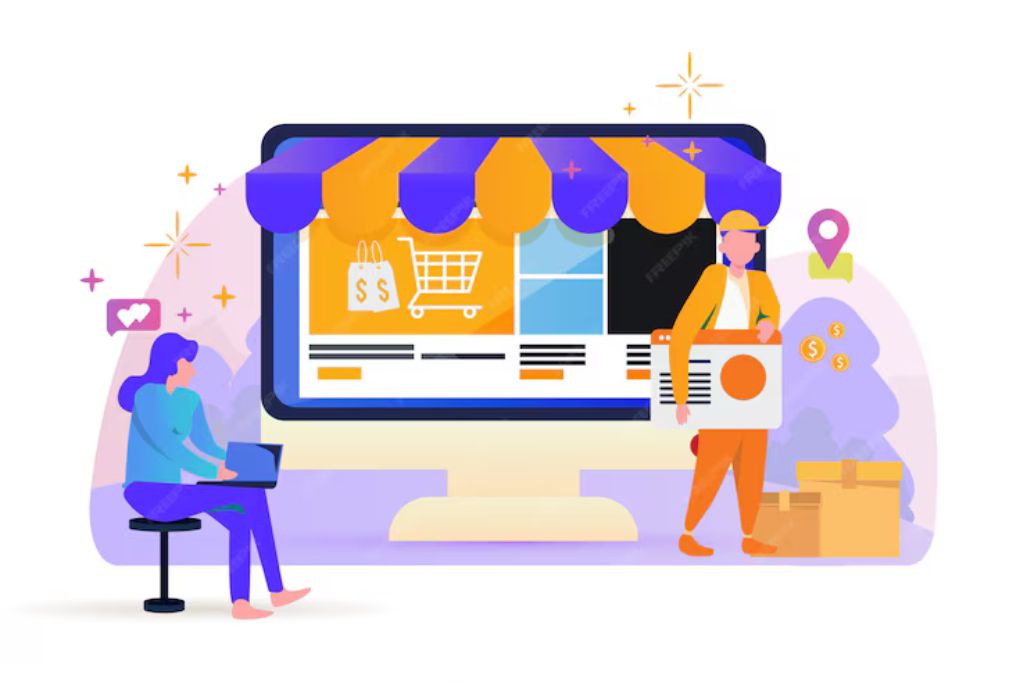Businesses today expect a seamless digital experience when interacting with suppliers through industry marketplaces. Building long-term loyalty and trust starts with understanding your customers’ needs and empowering them with helpful tools.
A well-designed B2B marketplace goes beyond simple e-commerce – it becomes a collaborative platform where buyers and sellers can connect, learn from each other, and get work done more efficiently.
In this article, we’ll explore 11 key features that B2B customers look for in a marketplace and appreciate the most. By prioritizing these user-centric capabilities, you can deliver an engaging experience that keeps customers coming back.
1. Robust Product Search & Advanced Filters
Customers rely on search to quickly find relevant products from the thousands available. Beyond basic keyword search, advanced filtering options allow buyers to drill down into exactly what they need.
Ideally, searches should be intuitive and fast while filters cover attributes like:
- Price: Slider bars or minimum/maximum values to filter for budget.
- Category: Drill into relevant subcategories from an extensive catalog.
- Brand: Filter popular brands or search for new suppliers.
- Ratings: Target highly reviewed or top-rated products.
- Features: Filter by important attributes like material, size, color etc.
- Inventory: Exclude out-of-stock products or filter to “In Stock Only”.
Making search powerful yet simple boosts conversion rates. Customers appreciate being able to narrow long lists into actionable shortlists with minimal effort.
2. Real-Time Inventory & Product Availability
No one wants to go through the checkout process only to encounter an “out of stock” message. Reliable inventory data builds trust that products shown are actually available for purchase.
Industry-leading marketplaces:
- Track inventory levels in real-time from supplier systems.
- Display actual stock quantities instead of vague “In Stock” labels.
- Alert buyers with waitlist options when items are temporarily out of stock.
- Send notifications to customers when back-ordered items are back in stock.
Having transparency into dynamic availability saves buyers time and frustration. It also encourages impulse or emergency buys by showing “Only 3 Left” type messages. Checkout: https://zipprr.com/alibaba-clone/
3. Detailed Customer Reviews & Aggregate Ratings
Shoppers heavily rely on other customers’ first-hand experiences before committing to a purchase. Reviews provide social proof that a product meets expectations.
Valuable review features include:
- Verified purchase requirement prevents fake reviews.
- Detailed written reviews with photos and pros/cons listed.
- Aggregate star rating visible on product pages.
- Ability to filter by star ratings.
- Responses from sellers address issues raised.
The combination of qualitative reviews and quantitative ratings gives buyers confidence to purchase with less perceived risk. It also informs sellers on ways to improve products and services.
4. Extensive Product Specifications & Supporting Docs
Comparing technical specifications is important for B2B buyers evaluating complex products and solutions. Supporting documentation helps determine compatibility and address inquiries.
Marketplaces can include:
- Detailed specifications tables, dimensions, materials used, etc.
- Hi-res product images from multiple angles.
- Data sheets, certificates, manuals and guides for download.
- Videos illustrating features, installations or demos.
- FAQs from sellers to address common queries.
Giving buyers all relevant information upfront saves back-and-forth communications. It positions the marketplace as a trusted educational resource beyond just transactions.
5. User Profiles, Social Reviews & Recommendations
Some effective capabilities include:
- User profiles to build professional credibility and follow peers.
- Status updates, questions boards and discussion forums.
- Ability to endorse or recommend other users.
- Product recommendations and Q&A discussions.
- Contacting other users directly with profile permission.
Social proof and peer recommendations play a big role in B2B decision making. These features help surface expertise, spark collaborations and cultivate loyalty.
6. Customizable Dashboard & Saved Favorites
Finding past orders, favorites and saved items quickly is important for repeat buyers. Customizable dashboards provide personalized control.
Useful dashboard features allow customers to:
- Save preferred product/category/supplier lists.
- Create customized workspace views by dragging/dropping widgets.
- Track orders, shipments, return processing and history.
- Access account details, newsletters, support in one place.
- Set reminder alerts for recurring purchases.
A personalized control panel puts buyers in the driver’s seat. It enables focused workflow and fosters long-term one-stop-shop habit for all sourcing needs.
7. Order Tracking & Delivery Management
Transparency during the fulfillment process is vital for large business purchases. Customers want visibility till final delivery.
Strong marketplaces provide:
- Order tracking from payment confirmation to shipment.
- Estimated delivery dates with scheduled shipment updates.
- Notification and downloadable invoices/packing slips.
- Address validation to ensure accurate delivery.
- Delivery exception alerts for delays or damage.
Real-time order tracking reassures buyers of smooth progress. It establishes the marketplace as an accountable single point of contact throughout the buying cycle.
8. Flexible Payment Options & Estimated Shipping Costs
Cost certainty streamlines the purchase decision. Convenient integrated payment gateways boost conversions.
Look for marketplaces that offer:
- Multiple payment methods like credit cards, bank transfers etc.
- Real-time estimated shipping rates and taxes shown in cart.
- International shipping rate transparency.
- Flexible payment terms like purchase orders, invoice etc.
- Multi-currency and localized pricing displayed.
Transparent upfront costs avoid unpleasant surprises. Flexible options make checkout simple, fast and secure for diverse B2B buyers globally.
9. Proactive Customer Support
Even with the best product, issues can arise. Timely support assuages doubts and retains loyal repeat buyers.
Support channels to include:
- Live chat assistance during business hours.
- Email support with maximum 24-hour response time.
- Toll-free phone numbers for urgent issues.
- Knowledge base of FAQs and common solutions.
- Support portal to track tickets, view responses.
- Self-service access to order statuses, returns.
Going above and beyond with responsive, empathetic support differentiates the marketplace experience in the eyes of customers.
10. Personalized Recommendations
Customers appreciate curated, relevant suggestions rather than feature overload. Personalization increases spend per transaction.
Leveraging purchase history and engagement, marketplaces can:
- Recommend complementary and accessory products.
- Suggest similar, higher-rated alternatives.
- Target promotions for most-bought related categories.
- Send automated emails with trending deals.
- Thank loyal buyers and cross-promote new arrivals.
Personalized touches foster individual connections that traditional retailers lack. It highlights the “human” side of digital commerce.
11. Responsive Design & Push Notifications
Today’s B2B purchasers are mobile-first. Flawless experiences across devices are non-negotiable for any marketplace.
Look for:
- Responsive design optimized for all screen sizes.
- Smooth navigation on touchscreens and low connectivity.
- Push notifications for time-sensitive alerts like inventory or deals.
- Simplified app for basic tasks like scanning, approvals on-the-go.
- Mobile order confirmations, returns, live help.
Enabling stress-free shopping anywhere empowers an increasingly mobile-centric workforce. It raises customer stickiness through constant marketplace access.
Conclusion
The most successful B2B marketplaces go beyond transactions to become collaborative ecosystems. They tap into what matters most to modern procurement teams – ease, personalization and efficiency.
Prioritizing features that optimize the buyer journey, from initial research to post-purchase support, cultivates intense loyalty. When customers feel understood and empowered, they actively promote your marketplace to their peers.
To stay ahead of the curve, keep refining the experience based on customer feedback. New technologies will continuously raise shopping expectations. But the foundation remains – deliver effortless, human-centric solutions that save time and solve real business problems.
With that, we covered 11 highly impactful features that B2B buyers look for in industry marketplaces. Focus on these areas to truly differentiate your platform, delight customers and dominate your niche.







